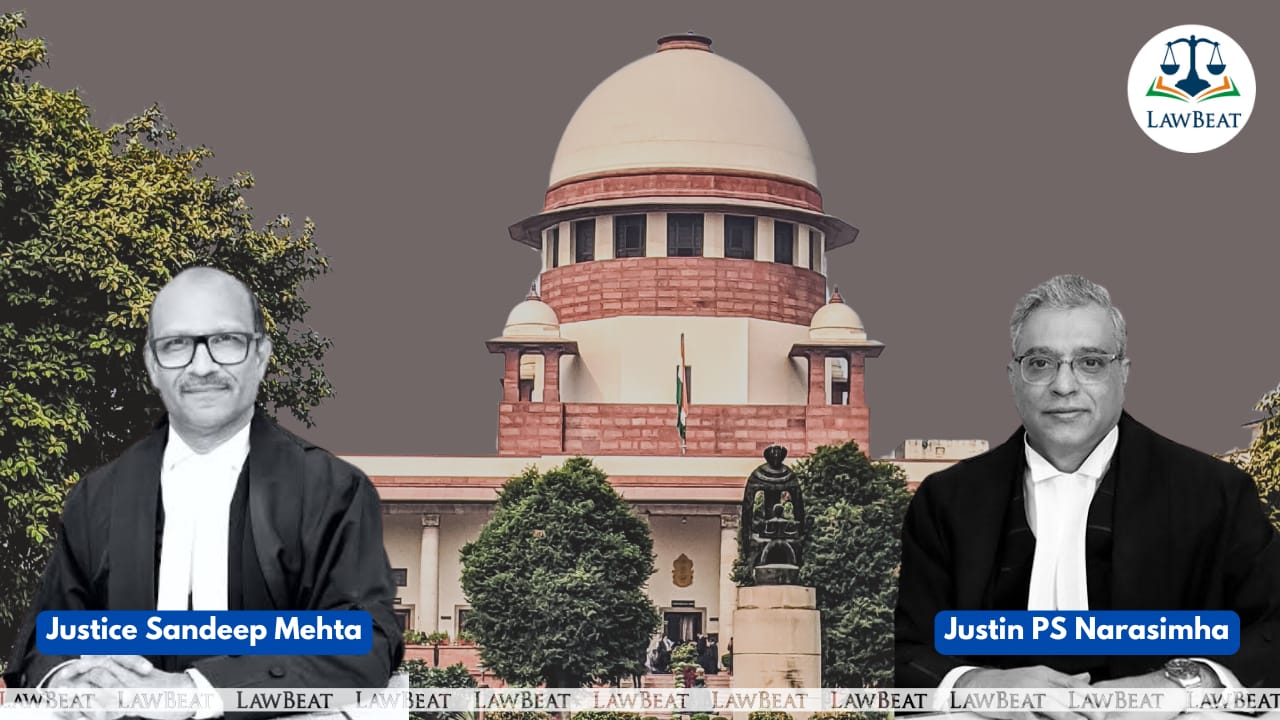SC awards Rs one lakh compensation to Airman for harassment over minor overtaking incident

The Airman was subjected to prolonged and unnecessary litigation for he allegedly overtook a senior officer’s vehicle at a railway crossing
The Supreme Court on October 21, 2024, directed the Union government and the Air Force authorities to pay Rs one lakh compensation to an Airman as a token of his citizen's identity and dignity, following prolonged and unnecessary litigation imposed on him for he allegedly overtook a senior officer’s vehicle at a railway crossing.
The bench, comprising Justices P S Narasimha and Sandeep Mehta, observed that the respondents’ excessive actions—initially expunging an admonition, later retracting it, and ultimately retrying the case—resulted in significant distress for the appellant, S P Pandey.
"Small excesses like overtaking the vehicle of one’s senior at a railway crossing may be an incident of indiscipline in defense services,but the balance and proportion that needs to be maintained between such an infraction and its punishment will always be at the core of good governance. If the balance is not maintained, the distinction between bad governance, impropriety, unfairness and inhuman treatment is not much," the bench said.
Court noted that the Armed Forces Tribunal had held that a small incident had unnecessarily grown beyond proportion.
The appellant's ordeal began on May 17, 2010, while returning from duty. Stopped at a railway crossing in a civilian area due to a closed barrier, he allegedly overtook all waiting vehicles and parked his motorcycle directly in front of the crossing gate.
A Squadron Leader, H V Pandey, who was also waiting at the crossing, confronted the appellant. Exercising the authority given to Air Force officers, he questioned the appellant's actions, took the motorcycle keys, and directed him to park the vehicle in the Guard Room. The officer informed the appellant that the motorcycle was being confiscated for violating Air Force discipline.
An argument ensued, during which the appellant allegedly responded with insubordinate language, reportedly saying, “Yah kaya gundagardi hai” (What kind of hooliganism is this?). Following this, the Squadron Leader ordered his closed arrest and informed the Unit's Commanding Officer and Adjutant. The appellant was subsequently charged with “Violation of good order and Air Force Discipline” and “Use of insubordinate language to a superior officer".
Having been served an admonition order two times, the appellant approached the Tribunal, which set aside the punishment by an order on January 18, 2011.
While deprecating the conduct of the officer for adopting such a severe action over a trivial issue, the Tribunal noted that as a Squadron Leader, he could have addressed the situation with appropriate guidance, upholding the high standards of discipline and dignity expected within the Air Force. Instead, his approach was seen as unnecessarily punitive. The Tribunal concluded that the appellant was subjected to harassment and humiliation giving an impression of vindictiveness at the instance of the concerned officers.
The Tribunal set aside the orders of punishment, rejection of statutory appeal, and representation.
However, it had rejected a plea for compensation.
"The findings of the Tribunal are categorical. It found that the matter was escalated beyond proportion and there is also an element of vindictiveness in the action taken against the appellant. More than anything, the lone battle of the appellant against the unfair and arbitrary treatment meted out to him, we think is the cause and reason for the indignation. The institution did not protect him, instead it put its full force behind respondent No 7 (the officer). Fortunately, the Tribunal set the record straight," the Supreme Court said.
Court opined that perhaps a simple apology by the officer would have gone a long way, but that did not happen.
"We are now called upon to assess the economic value of the indignity and proceed to grant monetary compensation to him. We are aware of how insignificant the monetary value of loss of dignity could be, but legal remedies that they are, enable us to settle it only as a measure, a token of our concern and in recognition of a citizen’s identity and dignity," the bench said.
Case Title: S P Pandey Vs Union of India & Ors
